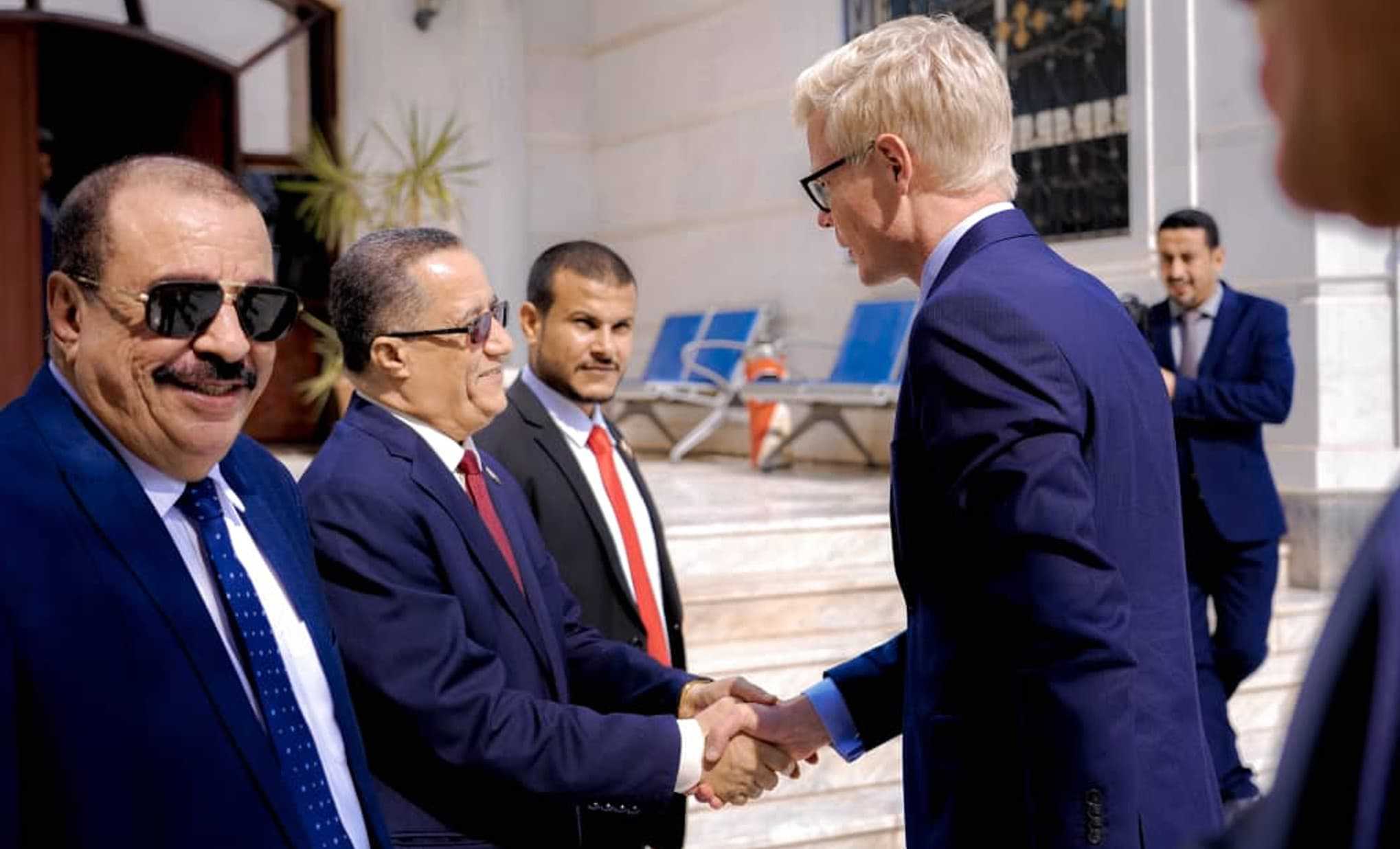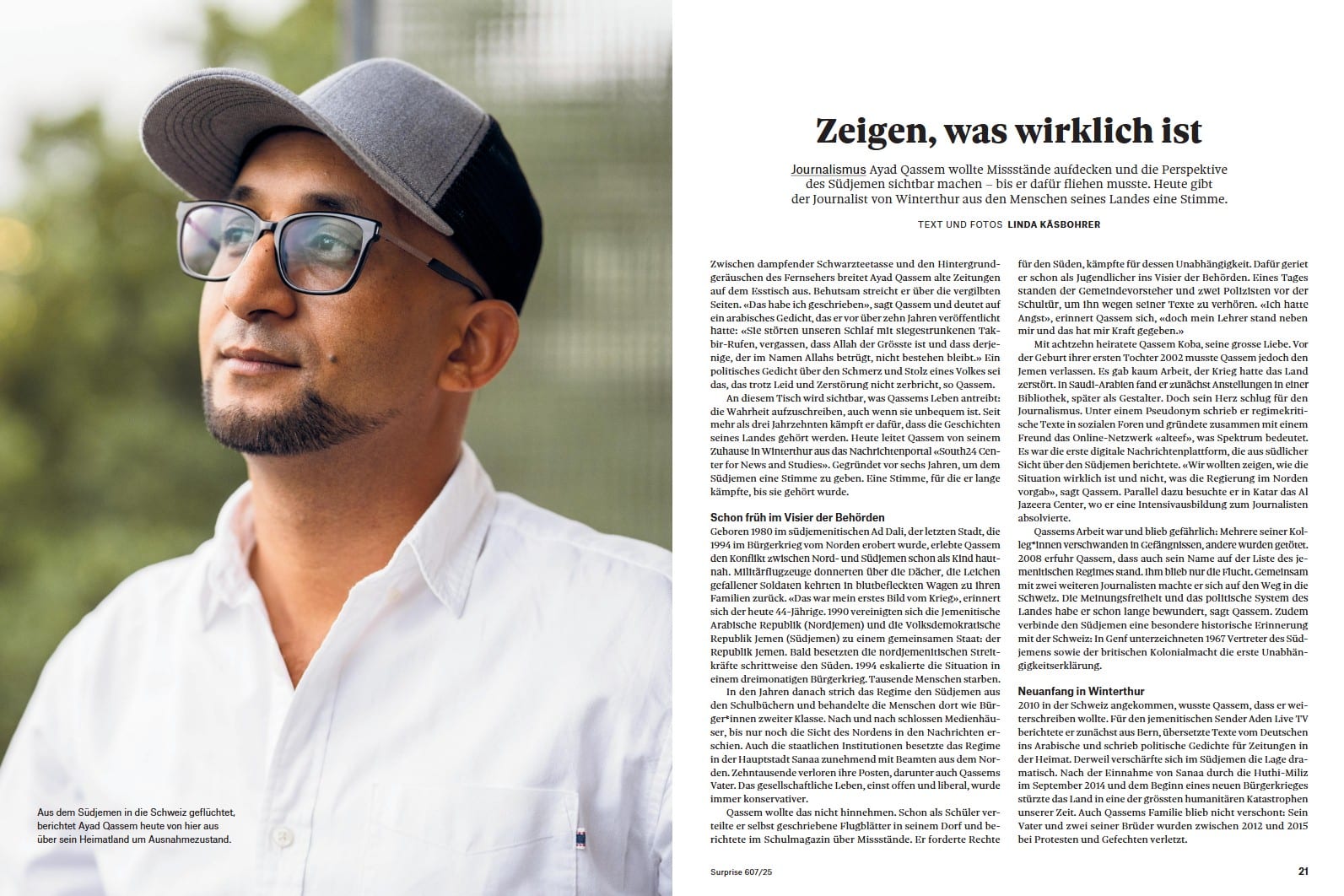
آخر تحديث في: 07-10-2021 الساعة 7 مساءً بتوقيت عدن
Patrick Wintour (The Guardian)
The new UN special envoy to Yemen has been urged to broaden negotiations to end the country’s seven-year civil war and include the pro-independence [STC] and other factions.
Speaking to the Guardian from Aden, the head of the STC foreign affairs directorate, Mohammed Al-Ghaithi, said the UN must recognise that outdated security council resolutions were restricting their efforts.
The current mandate of the UN envoy Hans Grundberg – based on a resolution passed in 2015 – focuses on the internationally recognised Yemen government of President Abd-Rabbu Mansour Hadi and the leadership of the [Northern]-based Houthi leadership.
Many observers say the conflict has long stopped being a battle confined to two forces within Yemen but involves a variety of actors, making a single national solution harder to achieve.
Appointed special envoy last month, Grundberg, a Swede and former EU ambassador to Yemen, travelled to the [Southern] capital Aden this week despite weekend fighting in the city that left six dead and 30 injured.
Grundberg made a point of not just meeting the prime minister of the Saudi-backed Hadi government but also the STC chairman Aidrous Al-Zubaidi, as well as other actors. He stressed his commitment to inclusivity afterwards, saying “Yemen has a rich history of political and social diversity. A durable solution is one that reflects the interests of diverse and broad segments of Yemeni society.”
Under an agreement with Hadi signed under Saudi supervision in 2019, the STC was supposed to join a power-sharing government in [… South], merge security forces and form a joint body to negotiate with the Houthis.
Rivalries have stopped most of this happening, arguably making it easier for the Houthis to advance towards strategically vital towns in [… North] such as Marib, a city of 3 million Yemenis.
Yemen was unified in 1990, and elements across the six governates in [… South] have always resented the loss of independence from [… North].
Al-Ghaithi said: “It is crucial that the negotiations need to reflect the realities on the ground. Without Southern representation there can be no practical peace plan in Yemen.
“The problem with UN resolution 2216 is that it presumes there are only two warring parties on the ground when the reality is otherwise. When the UN is seriously thinking about ceasefire, safe passage of humanitarian workers and the country’s economic future, it is imperative that it takes into consideration all the parties on the ground and amongst them is the STC.”
The STC said it is willing to test opinion in [… South] in a binding referendum. It argues: “If the British government was able to give a referendum to the people of Scotland so the people of [… South] in Yemen can have one.”
The STC also warned that the Iranian-backed Houthis were making military progress in some parts of the south under the control of the Hadi forces, endangering the routes into Marib – the last strategically important town not under Houthi control in the north.
The city and province has been under some form of bloody Houthi assault for more than a year. Marib lies about 120km (75 miles) east of the capital Sana’a, which the Houthis seized along with most of [North Yemen] in 2014 when they ousted Hadi.
There have been many thousands of casualties on both sides, with the Iranian-backed Houthi advance held back by Saudi air power and resistance within the city.
Al-Ghaithi said the stakes are high for the Saudis. “If the Houthis win, it will represent a threat to American energy interests, to Saudi Arabia and to the whole of the Gulf. The Iranians that back the Houthis will not stop at Sana’a. They want to go all the way to Mecca, and they think the road to Mecca lies through Aden. The Saudis know very well what comes after the fall of Aden.”
Source: The Guardian
Photo: STC Leadership receive Hans Grundberg at the STC's headquarters in Aden

قبل 3 أشهر

قبل 3 أشهر